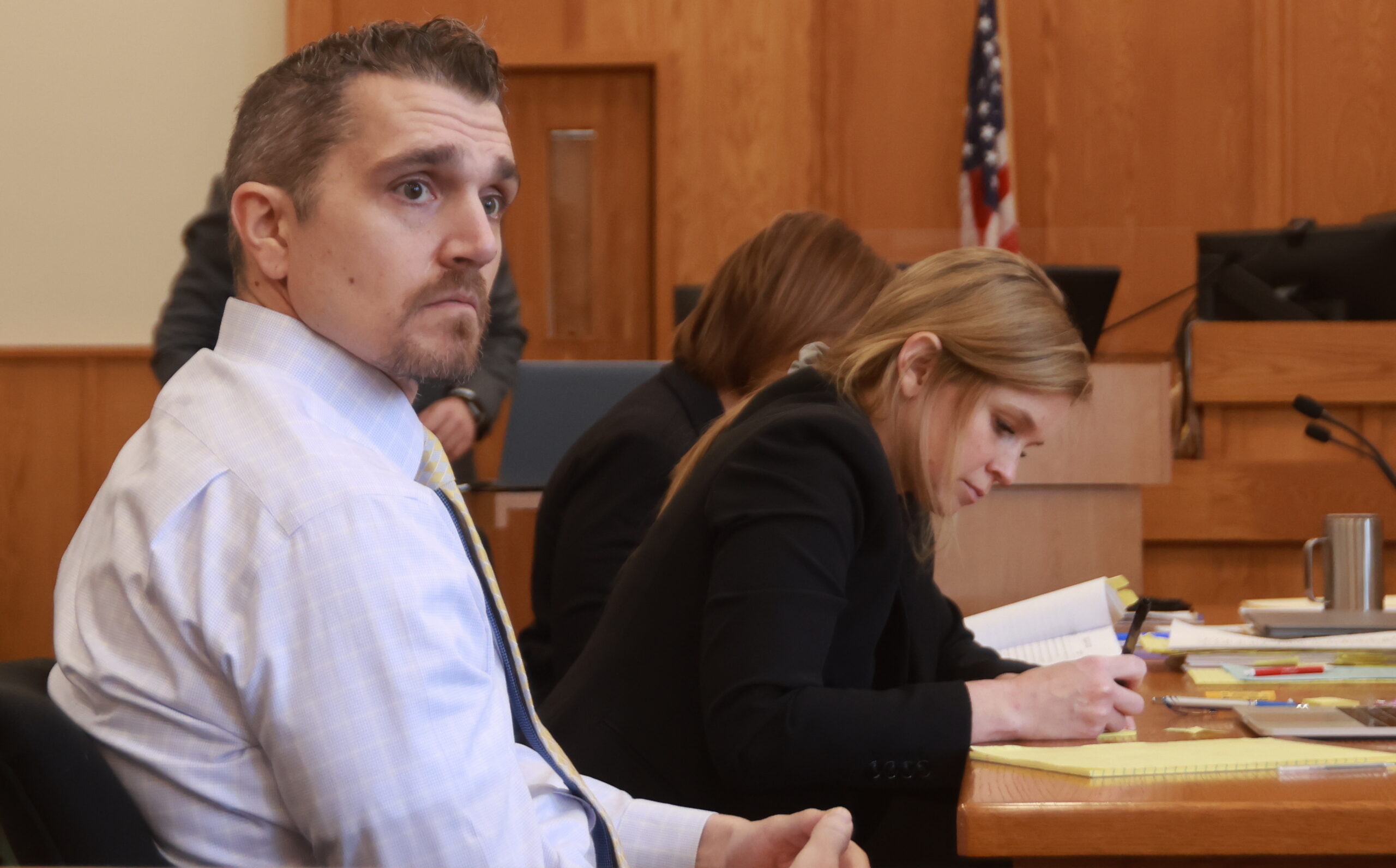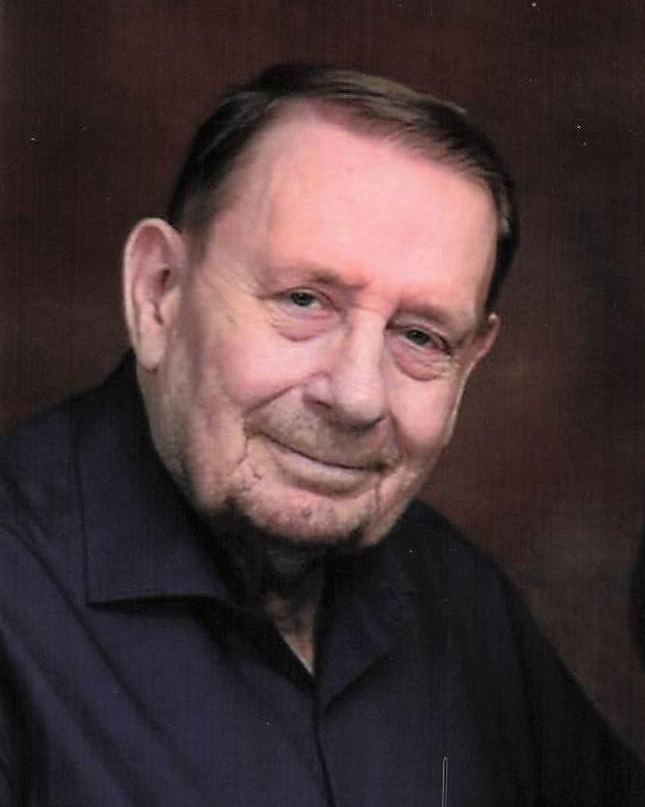Bliefnick attorneys petition Illinois Supreme Court to appeal November judgment of Fourth District Appellate Court

QUINCY — Attorneys representing Tim Bliefnick, a Quincy man convicted of murdering his estranged wife in Feb. 2023, have petitioned the Illinois Supreme Court for leave to appeal the Nov. 8 judgment of the Appellate Court, Fourth Judicial District.
A three-judge panel from the Illinois Appellate Court Fourth District — Raylene Grischow from Sangamon County, Craig DeArmond from Vermillion County and Robert Steigmann from Champaign County — affirmed Bliefnick’s conviction for two counts of first-degree murder and home invasion and his sentence of natural life in prison.
Becky Bliefnick, who had three sons with Tim Bliefnick, was found dead by her father in her home on Feb. 23, 2023, after being shot 14 times. She was 41. Tim Bliefnick was convicted in May 2023 of murdering his estranged wife and received three life sentences on August 11, 2023. He now is lodged in the Menard Correctional Center in Menard.
State Appellate Defender James Chadd, Deputy Defender Catherine Hart and Assistant Appellate Defender James Waller, all with the Office of the State Appellate Defender, Fourth Judicial District, filed the appeal on Tuesday, Dec. 3. Waller and Hart represented Bliefnick in the Appellate Court case.
The petition to leave to appeal (PLA) to the Supreme Court was filed within 35 days of the Appellate Court decision — the deadline set by Supreme Court Rule 315.
Allison Paige Brooks, assistant appellate prosecutor with the Illinois office of the state’s attorneys appellate prosecutor, represented the state and Adams County in the Appellate Court case. She could file an answer within 21 days after the expiration of the time for the filing of the petition — which would have been Dec. 13 — but it is not mandatory. Her answer would set forth reasons why the petition should not be granted.
The Supreme Court can allow or deny the PLA. If allowed, all future deadlines are based on the date the Supreme Court allows the PLA. Bliefnick’s attorneys would have to file a notice of election within 14 days after the PLA is allowed to tell the Supreme Court if the PLA will be used as their brief or if they will file an additional brief.
If Bliefnick’s attorneys choose to file a new brief, it must be filed within 35 days after the PLA is allowed.
If the PLA is denied, the case will not move ahead, and a mandate will be issued 35 days later.
The Supreme Court will hear the case at its discretion. There is not a specific time frame for issuing a decision. The Supreme Court may enter a decision to affirm, reverse, deny or vacate. If either side disagrees with the Supreme Court’s decision, a petition for rehearing must be filed with the Clerk of the Supreme Court within 21 days after the opinion is filed.
The PLA argues that Bliefnick was denied his right to a fair trial:
- When Adams County Judge Robert Adrian admitted a vast amount of inadmissible hearsay evidence under the “forfeiture by wrongdoing” doctrine, without regard for whether that evidence was relevant or otherwise admissible.
- When Adrian’s failure to recuse himself raised a constitutionally impermissible appearance of impropriety because of a conflict of interest with Adams County Assistant State’s Attorney Josh Jones.
- When Jones made representations to the jury of matters that were not in evidence.
Those were the same points of contention made by Waller and Hart in the Appellate Court case.
Steigmann disagreed on all three points in his Nov. 8 opinion.
- On the inadmissible evidence: “Bliefnick contends that all these statements were irrelevant and erroneously admitted as evidence of Becky’s ‘state of mind.’ The state counters that many of these statements were admissible for purposes other than these cited by the trial court at the pretrial hearing, and any improperly admitted statements were harmless error.”
- On the conflict of interest: “We conclude that (Bliefnick) forfeited the issue not only because he failed to raise the issue in a posttrial motion but also because this appeal is the first time Judge Adrian’s recusal has been raised. Before the trial court, (Bliefnick’s) suggestion of a conflict did not ask that Judge Adrian recuse himself. Instead, the only relief (he) requested was that Jones be removed as the prosecutor. Accordingly, (Bliefnick) did not preserve for review Judge Adrian’s alleged error in not recusing himself.”
- On Jones’ closing argument to the jury: “(Bliefnick) argues that (Jones’) comments during closing argument constituted … plain error. However, as the Supreme Court has noted, ‘Comments in prosecutorial closing arguments will rarely constitute … plain error because the vast majority of such comments generally do not undermine basic protections afforded to criminal defendants.’ In this case, (Jones’) rebuttal argument does not come remotely close to constituting … plain error.”
Chadd, Waller and Hart wrote in their PLA that clarification is needed from the Supreme Court to explain whether the admission of evidence delivered via hearsay, resulting in a violation of Bliefnick’s right to confront his accusers, is subject to:
- Harmless error analysis, as the Fourth District held in the Appellate Court case;
- Harmless beyond a reasonable doubt analysis, as other constitutional violations are determined; or
- Automatic reversal, as the Supreme Court held in People v. Floyd (1984).
“In People v. Floyd, (the Supreme Court) held that the admission of evidence to show the victim’s ‘state-of-mind’ in fearing the defendant constituted improper evidence was thus reversible error,” Chadd, Waller and Hart wrote. “While the (dissenting judge) in that case would have applied harmless-error analysis, the opinion of (the Supreme Court) was that such an error warranted automatic reversal.
“However, the Fourth District in this case disregarded Floyd’s approach and instead found that while the hearsay evidence was improperly admitted, the error was harmless.”
Chadd, Waller and Hart also wrote that the Appellate Court created a new doctrine of “implicit waiver,” constraining the attorney-client privilege. It also created a new law by determining who may challenge violating that privilege after the client’s death.
“Previously, the attorney-client privilege was absolute and intact after the client’s death, even in the criminal context,” the PLA read. “The only exception was a narrow one that existed only in the circumstance of will contests, known as the testamentary exception.But the appellate court in this case has now taken that testamentary exception, expanded it out of all recognition and joined it to the doctrine of forfeiture by wrongdoing.
“In doing so, the court has given itself the power to decide that a decedent would have waived her attorney-client privilege over any document or communication that she gave to her attorneys in the process of divorce litigation, so long as they could be used to prosecute anyone for her murder.”
Chadd, Waller and Hart said the Supreme Court needs to clarify Illinois’ stance on the scope and survivability of attorney-client privilege after death and to determine whether third-party standing may be recognized where the decedent’s estate is unrepresented.
“Such guidance would establish standards for handling privileged information in criminal trials and uphold essential protections of privilege,” they wrote.
Finally, Chadd, Waller and Hart wrote that guidance is needed for courts to determine when the appearance of judicial bias is “intolerably high” such that a failure of a judge to recuse themself renders the proceeding “constitutionally infirm.”
“In this case, the appearance of judicial bias was so extreme that (Adrian) took steps to seal any mention of that bias from the press and public,” they wrote. “The case raises a significant issue about judicial recusal in situations of evident public conflict. Adrian presided over this case that was prosecuted by Jones while Jones’ testimony against Adrian was pending in a Judicial Inquiry Board proceeding that was contemporaneous to this trial.
“The U.S. Supreme Court in Caperton v. A.T. Massey Coal Co. (2009) held that judicial recusal is necessary when the probability of actual bias on the part of the judge is too high to be constitutionally tolerable. Failure to recuse in like situations must be reviewable. A ruling from (the Supreme Court) would clarify when judges must recuse themselves to preserve public trust in judicial impartiality.”
Miss Clipping Out Stories to Save for Later?
Click the Purchase Story button below to order a print of this story. We will print it for you on matte photo paper to keep forever.

